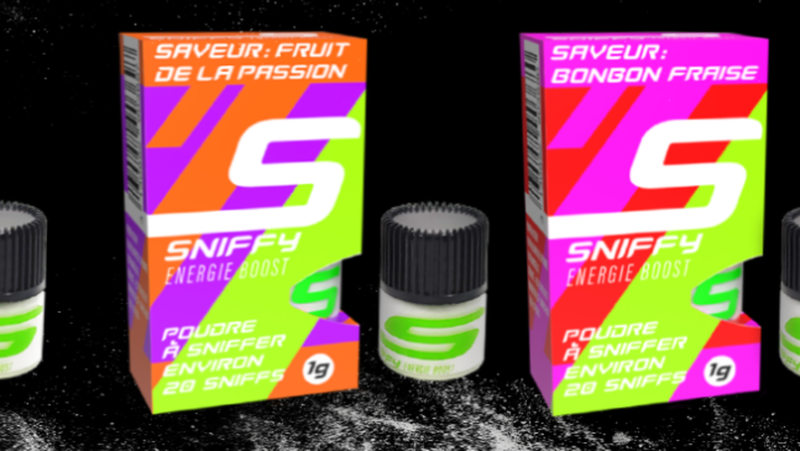Sniffy: how could the Minister of Health ban this legal product which is reminiscent of cocaine ?

Le ministre de la Santé promet une interdiction rapide, qui pourrait s’avérer plus difficile qu’il n’y paraît. Capture sniffy.fr
Le ministre de la Santé Frédéric Valletoux a promis l’interdiction prochaine de Sniffy, cette poudre à inhaler qui rappelle fortement la cocaïne, qui scandalise et qui pourtant, est bien légale. Comment le ministre pourrait-il la faire interdire ?
Compliance of a product with current legislation is essential for its placing on the market. Sniffy is no exception to the rule. However, the marketing of this energizing powder, which is taken using a small straw to be inserted into the nostril, is far from unanimously so reminiscent of cocaine consumption.
"A white powder that is inhaled through the nose ? Although it may evoke forbidden pleasure, it’s fully compliant with the law", boasts the Sniffy brand on its website ; a slogan then replaced by the more sober "no amalgamation, Sniffy is legal". Depending on the brand, the product contains l-arginine, an amino acid, caffeine, creatinine, l-citrulline, taurine or even maltodextrin, indicates AFP .
What levers for the ban?
What levers could the government then pull to ban this product ? Perhaps under the law which stipulates that "fary promotion of drugs, whether its use or trafficking, is punishable by 5 years in prison and 75& nbsp;000 euros fine", according to the site drogues-info-service.fr.
For the lawyer Yann Bisiou, questioned by Libération on this subject, the ban may indeed be more complicated than what the Minister of Health suggests, by promising to ban what he describes as "junk".< /p>
Je suis bien curieux de savoir comme @fredvalletoux va s'y prendre pour interdire Sniffy. Le produit est légal, l'INPI a enregistré la marque et même la provocation à l'usage de stup va être difficile à démontrer. Sans compter les contraintes européennes https://t.co/0CeBrkNuDl
— yann bisiou (@yannbisiou) May 25, 2024
"The product is legal, the INPI has registered the brand and even provocation to the use of drugs will be difficult to demonstrate. Not to mention European constraints. Even the provisions of the public health code allowing the classification of non-drug products seem inapplicable to me", he indicates on X.
In an article on the website of the Addictions France association, its president, the public health specialist Bernard Basset, is alarmed by the arrival of the Sniffy phenomenon. : "the problem with the marketing of this product is obviously not its composition, but its advertising promotion which is based in some way on decocainated cocaine".< /p>
The example of the "Puff"
Like puffs, Sniffy seems to target a rather young audience despite its ban on minors "Aggravating circumstance: there are different flavors sweet and tangy (Passion Fruit, Strawberry Candy, Plain, Fresh Mint and Lime) which, we have no doubt, will attract the youngest", castigates Bernard Basset.
The ban process could indeed be long, as evidenced by the fight initiated after the appearance of Puffs, these disposable electronic cigarettes with a candy flavor, quickly denounced as a health and environmental. However, since their appearance in 2021, three years have passed.
"On March 21, 2024, deputies and senators, meeting in a joint committee, reached an agreement on a final text. This text must still be definitively voted on by the National Assembly and the Senate, before its promulgation", indicates the Vie publique site concerning the bill to prohibit " puffs". Three years after their appearance, we still find this product on sale, due to lack of law promulgated to date.




